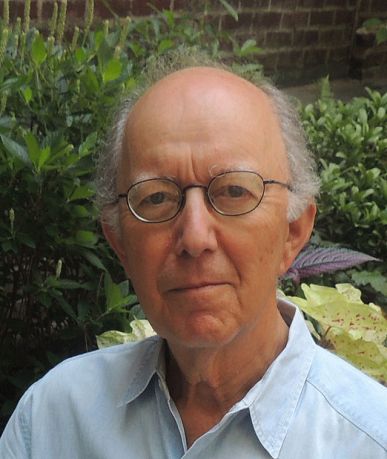Strathmore resident Victor Keyloun said he likes to wake up early each morning – even earlier than his wife Carol, who has lived with Parkinson’s disease for the last 25 years – and write.
Keyloun, 78, has been writing constantly since he retired in 1993 to focus on Carol’s treatment, releasing two memoirs and a murder-mystery novel each related to his career as an emergency room physician at St. Vincent’s Hospital in New York City and later in private practice.
But Keyloun said his latest work, a memoir entitled “Dr. Good Has Gone: Recollections of a Greenwich Village Physician,” juxtaposing the different lives of a man who now cares for his sick wife the way he once cared for his sick patients.
“As I say in my book, you can be a doctor or you can be a husband, you can’t really be both all the time,” Keyloun said. “So I chose to be with my wife.”
“Dr. Good Has Gone” compiles a series of narrative essays detailing the stories of patients Keyloun treated, interspersed with vignettes about Carol’s battle with Parkinson’s.
Keyloun said the “Dr. Good” in the book’s title is not necessarily him, but added all would fully be revealed within the final pages of his stories.
“The book really shows you the differences in medicine from then and now,” Keyloun said. “What we had in our day was primitive. The technology today is remarkable, but it costs so much more and is at the grip of what I call the corporatization of medicine.”
The youngest of six children, Keyloun opted not to join the rest of his family in the garment industry and instead attended the College of the Holy Cross and later the Georgetown University School of Medicine.
Throughout the 1960s and ’70s, Keyloun worked the emergency room at St. Vincent’s Hospital in addition to his own private practice in Greenwich Village.
“The day I opened my practice was an important day for medicine,” Keyloun said. “Not because I opened my practice, of course, but because it was July 1, 1966 – the first day Medicare went into effect.”
Through his career in medicine, Keyloun said, he became entrenched in what he considered the increasingly decadent culture of New York City during that time, which later served as the basis for his novel “Murder, Madness, & St. Vincent’s” about a murder that took place in the hospital in 1975 amid the financial troubles that led to its bankruptcy.
“I knew things the press never knew, and frankly the press was more interested in the financial crisis that plagued the city and the laying off of civil service employees,” Keyloun said.
Keyloun retired from practicing medicine in 1983 and opened a consulting firm specializing in sales training and medical education for pharmaceutical companies.
But he sold the business 10 years later to tend to his wife and began writing the vignettes that would eventually make up “Dr. Good.”
“I started by recording stories about sensational cases that happened to me while I was in practice,” Keyloun said. “My son Michael looked at a couple of them and said, why don’t you put these in a book? So that’s what I did.”
Keyloun said Michael, an actor and screenwriter, suggested he find a way to streamline the stories to give them a sense of weight and purpose.
Keyloun chose to contrast the medical battles he fought in his career with the one his wife was fighting at home, and kept his son on the project to continue providing notes.
“He put me through hell,” Keyloun said. “He forced me to be more thorough and really put my emotions into it.”
With each of those early morning hours spent at his keyboard, Keyloun said he’s written an account of the modern evolution of medicine from stories so close to his heart.
“It’s remarkable, at the end of the day, when you’re reading this, how different medicine is today,” Keyloun said. “Each story has its own set of particulars, a particular patient with a particular illness, but it really shows how medicine has developed not just as science, but with the bedside manner and what comes with that. I think you’ll be really surprised at the differences.”

